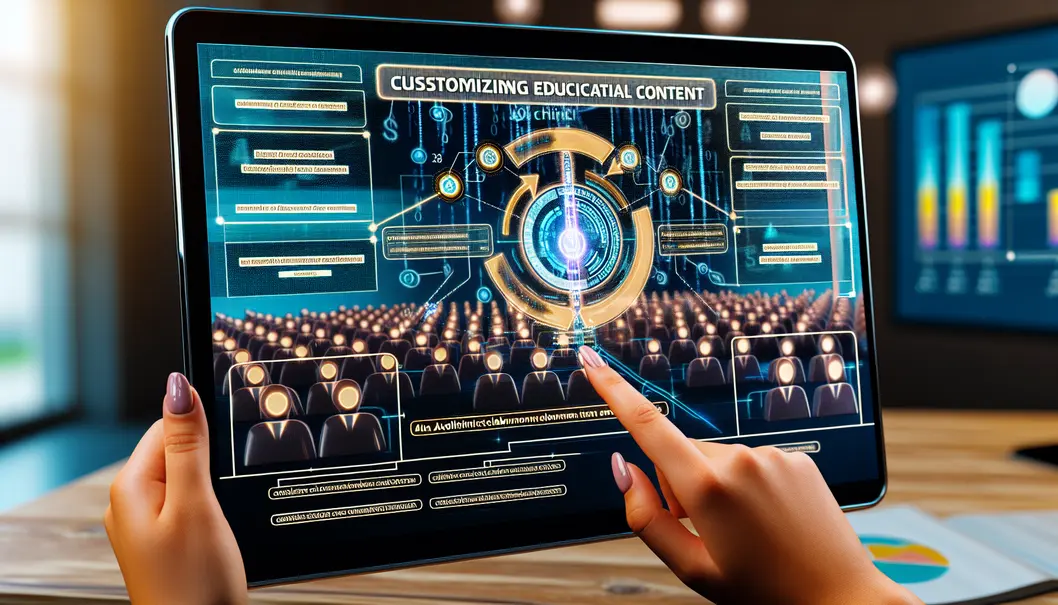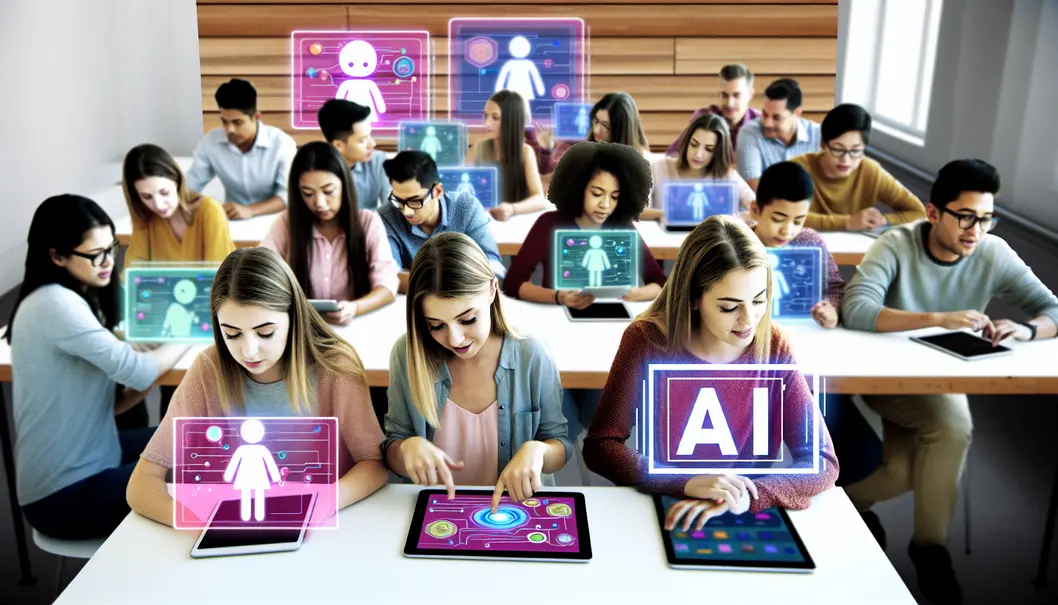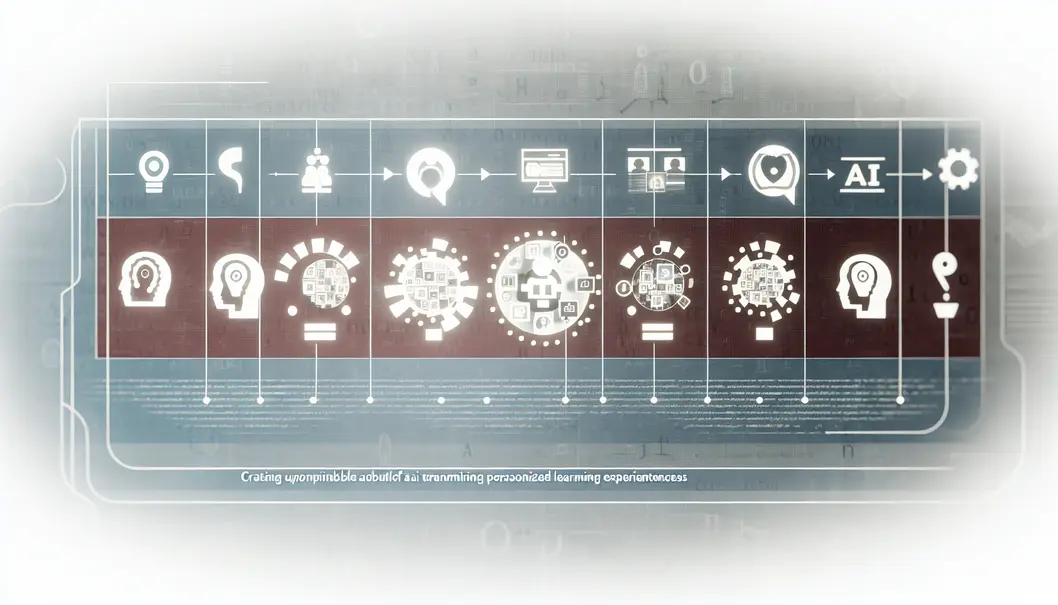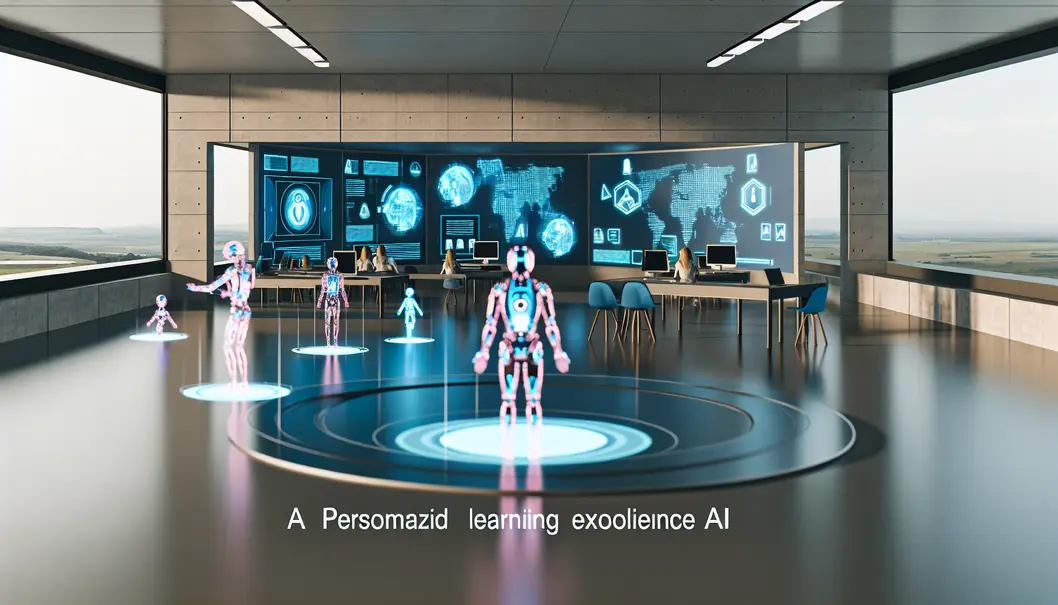The quest for personalized learning has been long-standing in the educational sector. Yet, challenges such as standardization and scalability often hinder effective customization. AI agents are beginning to bridge this gap, offering tailored educational paths that adapt in real-time to meet individual learner needs. Discover how these intelligent agents are transforming educational frameworks to deliver unique, customized learning journeys that engage and motivate students.
Understanding the Challenges of Personalized Learning

Crafting personalized learning experiences involves navigating a landscape of complex challenges. One major hurdle is the need for standardization amidst increasingly diverse student needs. Traditional systems, with rigid curriculums, often lack the flexibility needed to cater to individual learning paths. Educators strive to balance predefined learning outcomes with personalized content, a task that demands significant adaptability.
Addressing varying student competencies is another challenge. Each learner comes with unique strengths and weaknesses, necessitating tailored approaches. This customization can be resource-intensive, requiring substantial time and technological investment.
Resource constraints also pose significant barriers. Schools may lack the necessary technological infrastructure or funding to implement widespread personalization. Educators and administrators must innovate with limited budgets, often turning to digital tools and resources.
Scalability remains a daunting challenge. Implementing personalized learning at a classroom level is feasible, but extending it across entire schools or districts requires careful coordination. This process involves seamless integration of digital resources, professional development for educators, and ongoing evaluation.
Educational administrators play a pivotal role in overcoming these barriers. They must champion the shift towards personalization by securing funding, fostering innovation, and supporting teachers through continuous training. Collaboration among educational leaders, tech developers, and teachers is essential to successfully integrate personalized learning into traditional systems. For educators seeking to harness AI in crafting personalized e-learning solutions, exploring the potential of AI for e-learning can provide valuable insights into accelerating this transition.
How AI Agents Craft Individual Learning Paths

AI agents revolutionize education by stitching together personalized learning experiences for each student. Using a blend of data analysis and machine learning algorithms, these intelligent systems assess and adapt to individual learning habits and preferences. They collect a plethora of data points, including students’ previous interactions, performance metrics, and even their engagement patterns, to tailor instructional content. By analyzing this data, AI agents dynamically adjust the curriculum, ensuring lessons are both challenging and achievable.
Data analysis plays a crucial role here. AI scrutinizes students’ strengths and weaknesses and suggests resources or exercises that best fit the learner’s current needs. Machine learning algorithms predict the most effective learning paths, continually adapting based on real-time student feedback. These systems ensure content relevance, aiding both struggling and advanced students by providing immediate feedback and support.
Furthermore, platforms that integrate AI-driven tools, such as intelligent course management systems, provide seamless scalability in personalized education. By listening to student data and adjusting pathways accordingly, these platforms effectively eliminate one-size-fits-all education, paving the way for truly personalized learning experiences.
To explore further how AI is transforming e-learning environments, you can visit AI for E-Learning, where similar advancements in educational technology are discussed.
Boosting Engagement and Outcomes with AI-driven Systems

AI-driven systems in educational environments offer significant benefits, enhancing both student engagement and learning outcomes. By adapting to individual learning styles, AI can deliver personalized experiences that capture and maintain student interest. Instead of a one-size-fits-all approach, AI systems analyze each student’s performance and preferences, tailoring the learning experience accordingly.
Adaptive learning platforms dynamically adjust content difficulty and presentation, aligning with each learner’s current abilities and understanding. This approach not only boosts engagement but also allows students to progress at their own pace, improving comprehension and retention.
AI agents support engagement in various ways, such as simulating real-world scenarios or providing instant feedback. These interactive elements make learning more immersive, keeping students motivated and actively involved. By offering detailed progress reports, AI systems empower educators to identify areas needing improvement, enabling targeted interventions.
Moreover, AI technologies can facilitate collaborative learning environments by connecting students with peers who have complementary skills or coinciding interests. By fostering these connections, AI creates communities of practice that enhance learning through discussion and peer feedback.
Platforms that integrate AI capabilities open new pathways for student success by ensuring educational resources resonate with diverse learning preferences and needs. This individualized attention promotes a deeper understanding and fosters a more satisfied and motivated student body.
For more insights on how AI transforms educational experiences, visit AI for E-Learning.
Real-world Examples of AI-driven Adaptive Learning Platforms

AI-driven adaptive learning platforms have transformed educational experiences by offering personalized paths tailored to individual students’ needs. These platforms adjust content, pacing, and feedback dynamically, significantly enhancing learning outcomes.
One prominent example is how certain systems integrate machine learning algorithms to continuously analyze student interactions and adapt instructional strategies accordingly. By assessing performance and identifying knowledge gaps, these platforms might suggest additional exercises or alter the lesson sequence to optimize learning efficiency.
Educators have reported marked improvements in student engagement and achievement. Systems that permit individualized lesson plans allow students to progress at their pace, fostering a deeper understanding of complex subjects.
Moreover, AI’s capability to analyze vast datasets has enabled platforms to provide predictive analytics, offering insights that educators can use to anticipate student struggles before they become critical. For instance, patterns in data might highlight students likely to face challenges in specific areas, prompting timely interventions.
By incorporating natural language processing, some platforms even offer advanced feedback mechanisms. These systems can evaluate open-ended responses, offering nuanced feedback echoing that of human instructors.
For educators and educational institutions seeking to harness the potential of AI in learning, exploring resources on how AI can enhance e-learning might prove invaluable. This integration not only personalizes the educational journey but also democratizes access to quality education tailored to diverse learning styles.
The tangible benefits of AI in personalized education exemplify its transformative impact on traditional teaching paradigms, paving the way for an era of customized learning experiences.
Final words
AI agents are redefining the landscape of personalized education by offering scalable, adaptive solutions that address individual learning needs. These intelligent systems not only enhance engagement but also result in improved educational outcomes by implementing data-driven, real-time adaptations. As more educational institutions embrace AI, the potential for broader, more customized learning experiences continues to grow, paving the way for a future where education is truly student-centered.
Your AI agent is just a conversation away, reach out now!
Click here: https://nagainfo.com/contact/
About Us
Naga Info Solutions is a leading AI agency in India specializing in building AI agents for businesses looking to automate and scale effortlessly. With over 15 years of expertise, we help companies build AI agents using cutting-edge no-code tools like n8n AI, enabling seamless automation. Our ready-to-use AI agent templates accelerate deployment, making AI adoption fast and cost-effective. As pioneers in intelligent agents, we provide tailored solutions that integrate with existing workflows, enhancing efficiency and customer engagement. Whether you need AI-powered chatbots, automation, or workflow optimization, Naga is your go-to AI agency for innovative AI-driven solutions.




